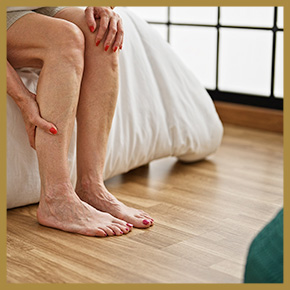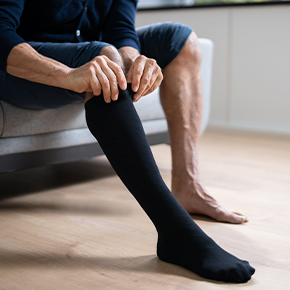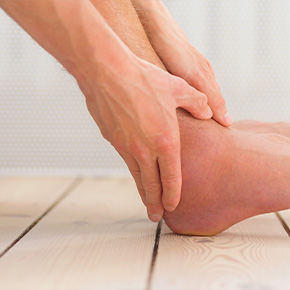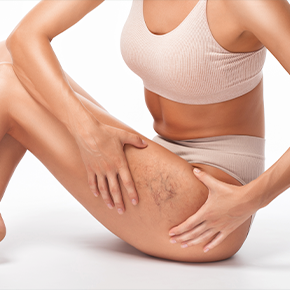Healthy veins are essential for proper circulation, but when vein issues arise, they can cause discomfort and other noticeable symptoms.

A common vein symptom, swelling in the legs, ankles, or feet can occur due to venous insufficiency, where blood pools in the lower limbs. This condition can cause discomfort, tightness, or heaviness in the legs, and it may worsen as the day progresses. Early intervention can help reduce swelling and improve blood flow.
Chronic leg discomfort, including aching or cramping, can be a common vein symptom. This often worsens after long periods of standing or sitting and can feel like heaviness or throbbing in the legs. Vein-related discomfort is typically caused by poor circulation and can lead to more serious issues if untreated.
Skin discoloration, often appearing as brown, red, or purple patches, can be a sign of vein disease. It typically occurs when damaged or weakened veins, such as in chronic venous insufficiency (CVI), lead to poor blood circulation
A neurological disorder characterized by an uncontrollable urge to move the legs, often accompanied by uncomfortable sensations such as tingling, aching, or itching. These symptoms typically worsen at night or during periods of inactivity, disrupting sleep and affecting daily quality of life.

Venous disease is a progressively worsening condition that does not resolve independently. Over time, it increases varicose veins, spider veins, and painful symptoms that can become more severe.

Varicose or spider veins around the ankle or leg are known as Corona Phlebectasia, named for the fan-like spread of spider vein capillaries resembling sun rays.

Spider veins are small red or blue veins that commonly appear on the legs, ankles, face, chest, or abdomen. They often resemble a delicate web or tree branches